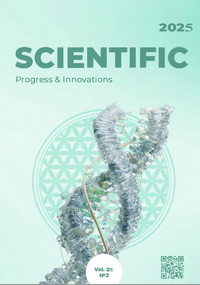Can improving soil health enhance agricultural sustainability and resilience to climate change?
DOI:
https://doi.org/10.31210/spi2025.28.02.18Keywords:
humus, fertilizer, mycorrhizae, microbiota, soil fertility, yield, ecosystemAbstract
The paper is devoted to the currently relevant problem of achieving sustainable development and minimizing the consequences of climate change by improving soil health. The authors aimed to determine whether improving soil health can enhance agricultural sustainability and resilience to climate change. A theoretical justification is provided for three concepts: soil health, sustainable development goals, and climate change, through an understanding of soil functions. Soil plays a key role in conserving nutrients, regulating water balance, reducing erosion, and mitigating greenhouse gas emissions. An attempt has been made to analyze soil health indicators to understand how they can be influenced to prevent climate change. Depending on the importance and complexity of monitoring soil health indicators, they were divided into three levels of observation. Level I is for baseline indicators that require continuous, more frequent monitoring (e.g., annually): OM and soil moisture content, pH, bulk density, soil texture and structure, visual state, and earthworm count. ІІ level is for more detailed and required laboratory analyses: potentially mineralized nitrogen content, cation exchange capacity, aggregate stability, electrical conductivity, water holding capacity indicators, and microorganism biomass. III level is for highly specialized laboratory research, which is held less frequently: microbial ratio (bacteria : fungi), C : N, soil respiration (CO2 emission), enzyme activity, microbiome genetic analysis, soil fauna biodiversity index, infiltration capacity. Based on the research, we propose addressing the issues of soil health, sustainable development, and climate change mitigation through measures to improve water retention capacity, maintain biodiversity, reduce soil erosion and degradation, and mitigate greenhouse gas emissions from agriculture, as well as adapt agricultural systems. The main thing is that the soil must preserve its functions for future generations. Be that as it may, food security will still be a basic need of all mankind. People will satisfy all other needs only when their biological needs are regular and satisfied.
Downloads
Published
How to Cite
Issue
Section
License
Copyright (c) 2025 Scientific Progress & Innovations

This work is licensed under a Creative Commons Attribution 4.0 International License.

 Creative Commons Attribution 4.0 International Licens
Creative Commons Attribution 4.0 International Licens